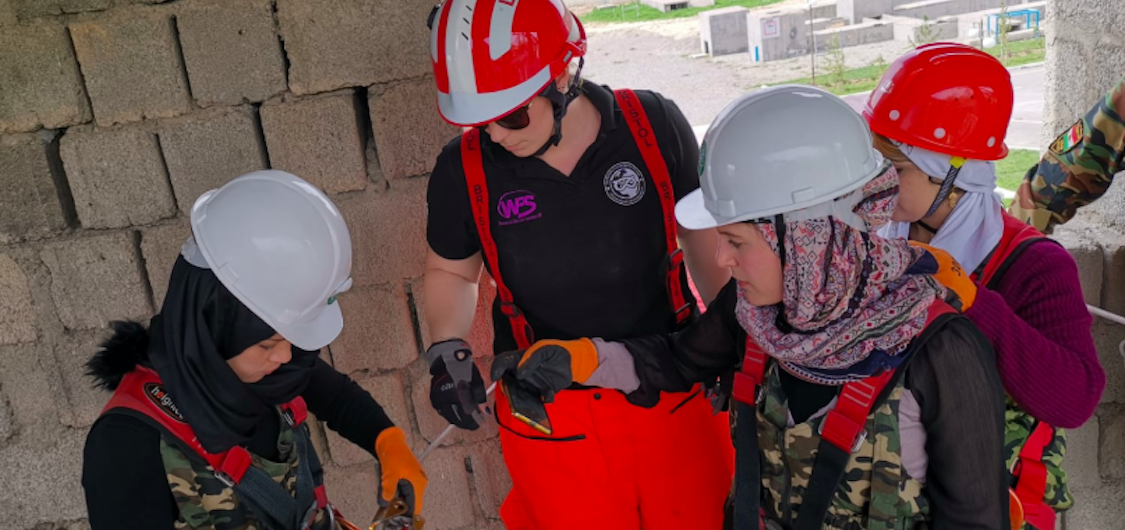
The Pamir region of rural Tajikistan is mountainous and much of it is very remote. EASST working with Young Generation of Tajikistan (YGT) and Fire Aid have been involved in improving emergency response in the country for the past five years, training first responders and sourcing equipment donations. In one location, they found that 50 villages and a major highway were supported by a single, 25-year-old fire truck.
As in rural areas in many countries, medical response to emergency issues including road crashes, is limited. Typically, major cities have better coverage and access to emergency services, whereas rural communities, being less-densely populated, may have long waits in an emergency, if they are able to get help at all. While Tajikistan is among the 62% of countries with a single, national emergency care number, many local people aren’t aware of it and it does not operate 24 hours per day. lack of resources and the inaccessibility of the mountainous roads mean that they might not be reached quickly.
In their assessment of post-crash services in the Pamir region, YGT and EASST found out that a lot of cars and people were falling down cliff faces on the mountain roads. The areas where this was happening were remote and too unstable for modern mountain rescue equipment. The team of experts supporting YGT and EASST thought that traditional rope rescue skills would be of benefit. If ‘official’ services were unable to reach victims, a community solution was needed. The NGOs worked with local villages to train up first responders. They focused on the women in the villages because they are usually the people closest by when an incident occurs. The men mostly travel away for work, so the women are always the first on the scene. UK-based Women in the Fire Service, trained 14 women from seven villages in mountain rescue, including rope rescue, and first aid while volunteers from the Staffordshire Emergency Services Humanitarian Aid Association (SESHAA) trained local firefighters in rope rescue and other skills.
The Global Status Report on Road Safety 2018 states that the proportion of patients who die before reaching a hospital in middle-income countries, such as Tajikistan, is over twice that in high-income countries. Training community volunteers to reach victims quickly has huge potential to reduce the number of deaths on these mountainous rural roads. Simple, cost-effective initiatives such as this resonate with the advice from the live session on health to focus on community solutions to make sure that everyone has access to basic healthcare. Watch the session HERE.